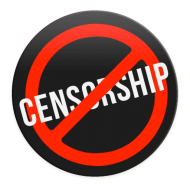“Today we reject the idea that corporations have a freewheeling First Amendment right to censor what people say,” says the US Federal Court as it upholds Texas law.

On Friday, September 16, the US 5th Circuit Court of Appeals released a decision that goes right to the heart of big tech censorship. The court upholds the Texas statute (House Bill 20) that “generally prohibits large social media platforms from censoring speech based on the viewpoint of the speaker”.
In their appeal, the big tech platforms (represented by industry trade organizations) claim the statute is unconstitutional because – now get this – the First Amendment free speech rights for individuals also implies that big corporations are likewise entitled to “a corporation’s unenumerated right to muzzle speech”. In its decision to reject this argument, the court states,
The implications of the platforms’ argument are staggering. On the platforms’ view, email providers, mobile phone companies, and banks could cancel the accounts of anyone who sends an email, makes a phone call, or spends money in support of a disfavored political party, candidate, or business.
The court’s decision continues,
What’s worse, the platforms argue that a business can acquire a dominant market position by holding itself out as open to everyone—as Twitter did in championing itself as “the free speech wing of the free speech party.” … Then, having cemented itself as the monopolist of “the modern public square,” … Twitter unapologetically argues that it could turn around and ban all … speech for no other reason than its employees want to pick on members of that community.
The Texas statute allows users to sue big tech platforms if they have been censored. In the statute, the term “Censor” is defined as “to block, ban, remove, deplatform, demonetize, de-boost, restrict, deny equal access or visibility to, or otherwise discriminate against expression.” Note that the statute does allow censorship where “specifically authorized to censor by federal law” such as preventing the sexual exploitation of children, threats of violence, and other unlawful expression. The statute also requires platforms must disclose how they moderate content, publish an “acceptable use policy”, and maintain a “complaint-and-appeal” system.
We’ll have to see where this goes from here. But at the moment, Big Tech is on notice and on the defensive. The full text of the Court’s decision can be found here: https://www.ca5.uscourts.gov/opinions/pub/21/21-51178-CV1.pdf
